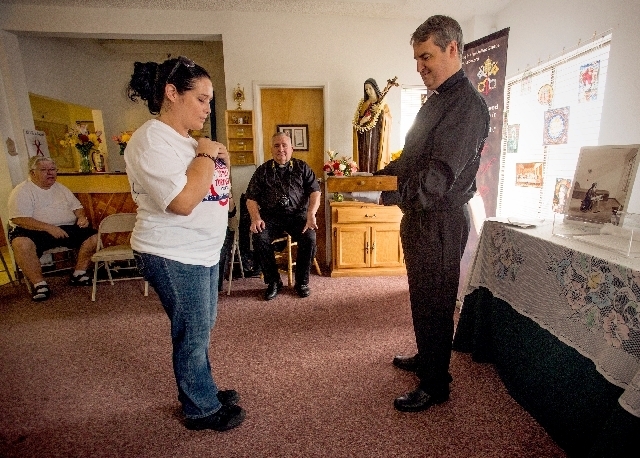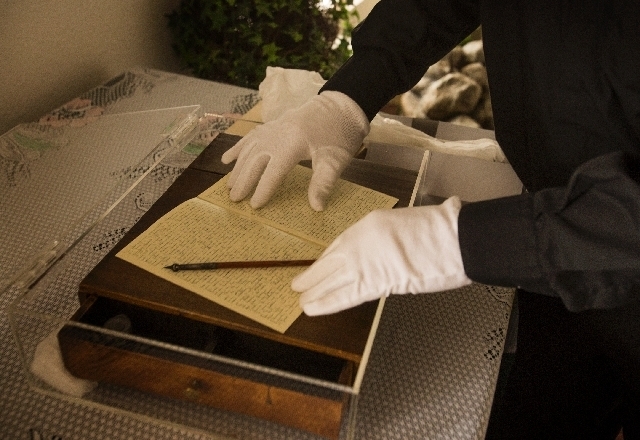Saint’s relics inspire faithful
Overwhelmed by the moment, Jenny Montoya pressed her hand to her heart and prayed. She thanked God for this day and for the St. Therese Center for HIV Outreach, where she has volunteered for the past year.
She thanked God for bringing Father Andrew to the outreach center on Wednesday and for the opportunity he offered: the chance to see a wooden writing case used by Therese during her lifetime and to learn more about her.
Montoya then dropped a piece of paper into the open drawer of the writing case. The Rev. Andrew Small stood holding it in front of about 20 people at the center to see the relic of Therese of Lisieux. One by one, they approached Small and placed their names into the writing desk that she used in the last years of her life.
Small, national director of the Pontifical Mission Societies in the United States, eventually plans to return the desk and the pieces of name-bearing paper to the French convent where Therese lived and died in 1897.
First, he will bring the desk, and Therese’s pen and ink well, on a tour around the country as a way to engage parishioners about the teachings of St. Therese and about the Year of Faith, when Catholics are asked to study and reflect on their religion. Until last week, when Small flew to France to pick it up, the case had never left the Carmelite convent in Lisieux.
His first stop with the piece of holy history was the HIV and AIDS outreach center that bears St. Therese’s name. The center’s main campus is at 100 E. Lake Mead Parkway in Henderson.
“Our outreach is what Therese really wanted to do in her life,” said the Rev. Joseph O’Brien, the center’s executive director.
When the outreach center opened in 1998, the saint was chosen to serve as a guiding force for its mission, O’Brien said, because Therese’s life reflected the experiences of people with HIV and AIDS.
For years, she suffered from the effects of tuberculosis, lived through excruciating pain from the illness and medical treatments. All the while, she wrote. She wrote about her health, her feelings, her fears that God had abandoned her.
“She had the dark night of the soul where she felt God had left her,” Small said.
Through it all, Therese maintained her faith. Toward the end of her life, Therese said she wanted to spend her time in heaven doing good on earth, Small said.
Therese is important to the Roman Catholic Church, Small said, because of her unflagging faith. In 1997, Pope John Paul II declared St. Therese a “doctor of the Church” because her writings were considered to be some of the most profound spiritual writing ever.
Small plans to take the writing case, and his speech about Therese, to 20 dioceses in California, Florida, Missouri, New Jersey, New York, Ohio, Texas and Washington. The tour will end in October.
Contact reporter Sonya Padgett at spadgett@review journal.com or 702-380-4564. Follow @StripSonya on Twitter.





























